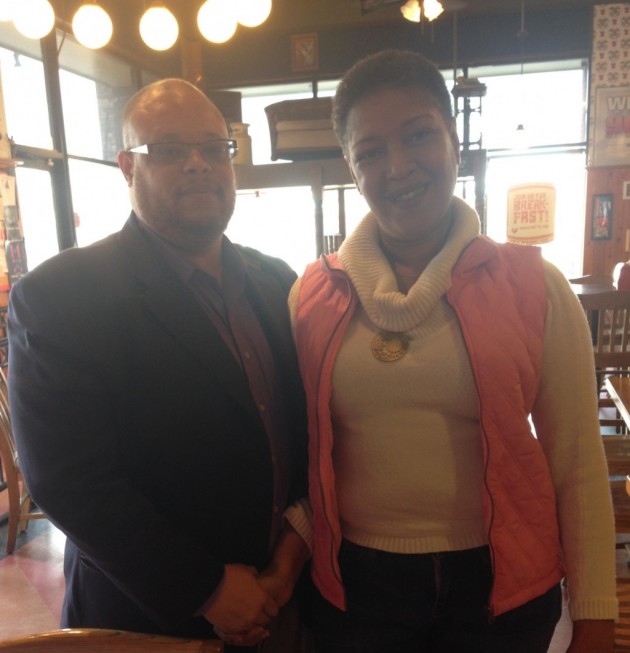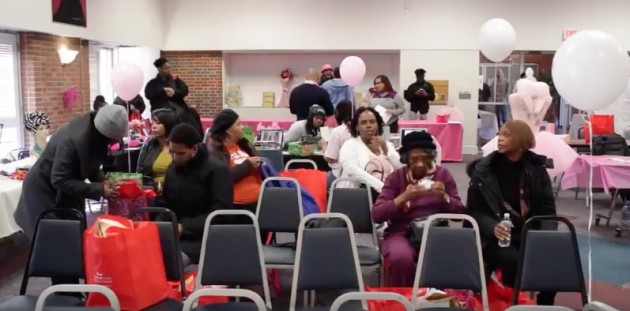WASHINGTON – Che Sayles said he used to beat his first wife.

Former abuser Che Sayles, with his new wife, Kanija, now speaks out against beating women.
In fact, if he had done to a man what he did to his wife, police would have taken him to jail, Sayles said.
“You have same sex relationships where men abusing other men, but when you call the police, they don’t write it up as maybe as domestic,” he said. “They write it up as assault.”
Sayles, a 39-year-old government contractor, is now remarried and reformed. These days, he speaks out against domestic violence.
It’s really a human issue,” he said. “It’s a how-do-you-deal-with-conflict with anyone you run into.”
Sayles urges women who are in an abusive relationship to seek professional help.
“Don’t tolerate it,” he said. “Get help and get out.”
Sayles is targeting men specifically and pointed out there was a lack of teaching men how to manage their conflict, he said.
“People will always say, ‘Hey, never put your hands on a woman,’” he said. “You hear that growing up, but no one will actually tell you the tools or how do you do it – ‘Don’t raise your voice. Don’t put your hands up. Walk away. Only speak when you’re in a calm place.’ They don’t give you those specific tools.”
One of these tools Sayles is currently working on is a 10-point-guide male handbook for non-violence. He said he hopes that this handbook will be introduced to middle schools all across the country in order to give some basic instructions on how to address domestic violence.
He also works with the Prince Georges County Crisis Center and is currently in the process of working with Still I Rise, an upcoming organization in Prince George’s County.
Sayles married his current wife, Kanija Sanford Sayles, six years ago after meeting her while she was vacationing in Bowie, Md.
Despite Sayles history, his wife said she never questioned whether she would have to deal with her husband past ways, and he has never lifted a finger toward her.
“It was more of an isolated incident than a past of patterns,” Kanija Sayles said. “So I took it as an isolated incident. In the sum total of the entire person, it was a non-issue.”
Sayles said community outreach and speaking out against domestic violence are very important to him.
“You never know exactly who you’ve touched,” he said. “I spoke at University of Maryland. I spoke at Howard and when I spoke at Howard, I did a program with the AKA (sorority) and people in the audience cried.”
Sayles said he decided to speak out because he felt it could make the difference.
“Breaking that silence became part of the answer for me,” he said. “So, I said, ‘Well if that’s part of the solution and the answer for me, then maybe that can be part of the solution for so many other people.’ It’s just actually being able to say it.”
Mr. Sayles advises men who are abusive to seek professional help, and he urged people to be more vocal about the issue.
“Domestic violence can’t be a whisper issue,” he said. “It’s one of those things that people whisper behind people’s back and we have to get away from that.”







